Past Provost’s Inclusive Teaching Fellows
2023-2024 Provost's Inclusive Teaching Fellows
College of Fine Arts
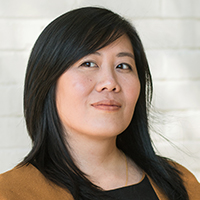 Imin Yeh
Imin Yeh
Associate Professor and Director of Foundational Studies
School of Art
Course: 60-104 | Foundations: First Year Seminar
Goal: Prioritize student experiences, values, and perspectives to support their growth as individuals and as a community.
This course aims to build community with the first-year cohort and familiarize students with the facilities and resources within the School of Art. Students explore various methods of artistic research and forms of making that can support today’s creative citizens. A s focus of the project is to develop and execute a new course objective: “Practice various forms of critique, respectful dialogue, and ways of reading works of art while recognizing and developing awareness of our own biases.” Students are assigned a collaborative timeline drawing to complete together in response to weekly prompts, providing the opportunity to have rich discussions about a variety of topics. Data from the timeline discussions serves as a foundation for subsequent lectures and helps build toward a critique exercise later in the semester. Student timeline entries serve as qualitative, direct data points to assess students’ development on what art, artists, and types of media they recognize and value, which informs other aspects of the School of Art curriculum. Instead of designing and presenting this course from the top-down, with a focus on content, this project centers the students’ experiences, values, and perspectives.
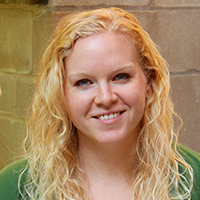 Kate Pukinskis
Kate Pukinskis
Assistant Professor, Composition and Theory
School of Music
Course: 57-959 | Music and Triads: Before/Beyond Roman Numerals in Western Music
Goal: Reach more students by incorporating a wider range of materials in assignments.
This course is a graduate music analysis course in which students explore the familiar technical tools and vocabularies associated with the triad in music theory, but in freshly reconstituted contexts and spaces. The predominant focus of this PITF project is to dig deeply into student assessment; I am diversifying and expanding assignment design to cover a wider variety of material and methods, as well as to better reflect my students’ skills and goals. My hope is that the translation of the work inside the class to their work outside of the class becomes smoother and more transparent to them. Redesigned assignments include more transparency about steps to success as well as learning outcomes and objectives. Additionally, assignments build on each another and are being designed in tandem so that the thread or throughline of the assessment is more soundly anchored into the work. Redesigning my assessments to enact a wider reach--in the repertoire, the methodology, and with the student in mind--positions me to meet more students where they are at the start of the semester and to balance the general learning outcomes with the individual student journey.
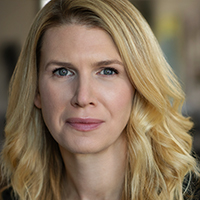 Lisa Velten-Smith
Lisa Velten-Smith
Associate Professor of Voice and Acting
School of Drama
Course: 54493-A | The Business of Acting
Goal: Center the student by getting them to reflect and choose how to participate and what their professional and personal goals are.
This is a semester-long course whereby seniors in the Acting/Music Theater curriculum learn about the business side of their industry and what actions they can take to be a productive participant in their careers. Special attention is paid to honoring their values and maintaining a strong sense of self in a challenging entrepreneurial career. Flipping the classroom provided the opportunity for the students to explore content on their own time and complete various assignments before coming into class. As a result, I was able to provide a diverse body of content not only in terms of the type of deliverable (podcast, video, text) but also work to ensure diverse representation in the authorship of the deliverables. With students empowered with the new information, questions had time to be formulated and we were able to have more robust conversations ensuring everyone’s point of view was heard. The new design has allowed me to center the student from the very beginning, through assignments designed to challenge them to be clear about what career and life they envision for themselves. The assignments provide students choice of how the students consume information (text, video, podcasts), plus various methods of participation whether it be through jamboard, online workbooks, in person discussions, exit tickets, work with a partner or online video submissions. To assess the impact of these changes, I am using a survey to ask about students' sense of growth and their sense of belonging.
 Miso Wei
Miso Wei
Assistant Teaching Professor
School of Drama
Course: 54271 | Technical Management
Goal: Structure students’ metacognition so they can more effectively grow as learners and communicators.
This is a foundational management course for design, management, and technical students to learn about soft skills and hard skills of management. My PITF project aims to improve the students' learning experiences by diversifying the course content and also grounding my teaching methods in student experiences. I utilize learning journals for the students to track their learning progress, their developing communication strategies, and learning expectations. By increasing their metacognition, I hope to support more types of students. By increasing my awareness of where the students are and how to meet them where they are, I can be more inclusive to the diverse students in my class. To assess my project, I have deployed both an assessment of students’ listening and communication skills and a survey about students’ sense of belonging.
Carnegie Mellon University - Africa
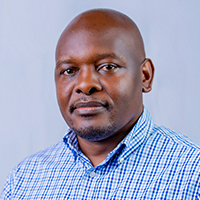 George Okeyo
George Okeyo
Assistant Teaching Professor
College of Engineering
Course: 04-638 A | Programming for Data Analytics
Goal: Support students with different backgrounds and goals with scaffolded, formative assessments and real-world problems.
This is a foundational course that is taken by students who aspire to take more advanced courses in either software development or data analytics. It explores fundamentals of object-oriented programming and uses the knowledge and skills gained to build various types of advanced analytics solutions. My PITF project is designed to support the diverse students that enroll for the course through inclusive teaching strategies. My goal is to enhance student engagement, foster and motivate student learning, and provide a supportive environment for all students to attain the learning objectives. We are scaffolding students by providing redesigned course material as well as practice exercises that enable us to provide formative feedback and support learning. We are also using different types of assessments based on solving real-world problems to enhance student engagement. We have conducted an initial survey, an early course feedback survey, and plan to conduct an end of semester survey to gauge how effective our strategies are. By enabling students to solve graded practice exercises and receive formative feedback, we have made learning gradual, stepwise, and connected for all practical assignments in order to maintain student motivation.
Carnegie Mellon University - Qatar
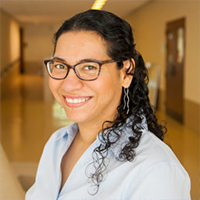 Nesrine Affara
Nesrine Affara
Assistant Teaching Professor
Biological Sciences Qatar
03-230 Introduction to Mammalian Physiology
Goal: Provide students with practice and exploration opportunities before coming to class to improve student learning and confidence.
The students enrolled in this course are all undergraduate Biological sciences majors of any year. One of the main goals of this course is to empower students not only with knowledge about the human body functions, but also to develop the necessary skills to correlate patients’ symptoms with the organ system anatomy, identify potential causes leading to an underlying malfunction, and apply this knowledge to future prevention plans. Through this PITF project, my aim is to provide students with more opportunities to acquire knowledge and gain confidence in their learning prior to joining the class discussion about a specific organ system, in this case, the Cardiovascular system. They get practice by interacting with a 3D model developed in the EON-XR software. Following immersion with this 360° interactive environment, students will have the opportunity to apply and practice their anatomy skills before class by completing activities with the 3D model. We are assessing learning gains specific to the 3D module relative to control units. We are also addressing how confident the students felt coming to the class on the first day of the unit. By engaging in a 3D learning experience, this PITF project offers our students at the CMU-Qatar campus with a resource to learn about human anatomy comparable to opportunities presented on the main campus.
Dietrich College of Humanities and Social Sciences
 Derrick Gray
Derrick Gray
Senior Lecturer
Philosophy
80-130 Introduction to Ethics
Goal: Make philosophical ethics more meaningful and useful in student lives by broadening the moral theories considered and encouraging individual reflection.
In this course, students critically engage in philosophical ethics and important contemporary moral debates. They learn how to read, think, and write so as to effectively formulate, explain, and support their own ethical views. The goal of the PITF project is to encourage a greater range of students to find philosophical ethics meaningful and useful in their own lives. This includes encouraging each student to actively think about their own ethical development, and about their own role (acting as an individual or in concert with others) in whether/how their society promotes social justice. As part of the project, updated course materials and discussions present moral theory beyond just the traditional Eurocentric canon, and press students to consider the larger political context of what might otherwise seem like personal ethical decision-making. Reflection exercises encourage students to find their own more personal connections with the theory and issues we discuss. To assess this project, I'm using pre- and post-surveys to ask students' about their confidence in their analytic skills and about their ability to meaningfully reflect on the role of ethical thinking in their lives. By including a wider range of voices in course materials, and by using reflection exercises, I hope to help more students discover the relevance of ethical thinking in their own lives.
Heinz College of Information Systems and Public Policy
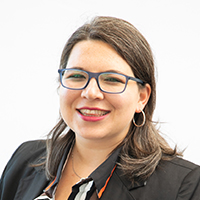 Gabriela Gongora-Svartzman
Gabriela Gongora-Svartzman
Assistant Teaching Professor
Course: 90-803 | Machine Learning Foundations with Python
Goal: Create a space where students feel they belong, develop empathy and sensitivity toward data, learn from each other's perspectives, and incorporate their learnings into their careers.
This course is designed to give students a solid grounding in algorithms, modeling, and tools employed in machine learning. The emphasis is on understanding the application of a wide range of modern machine learning techniques to specific data analysis scenarios rather than on mastering the theoretical underpinnings of the techniques. My PITF project is designed to promote an inclusive learning environment where students can progress as individuals and in groups to analyze and describe the societal impacts of machine learning methods implemented in real-world datasets while considering ethics, bias, and fairness. We are supporting students by assigning pre-work challenges to prepare students for in-class discussions, combining small and whole group discussions. Throughout several classes, we are focusing on cases that are solved with machine learning and touch on ethics, bias, and fairness. The focus of the class will be on leveraging machine learning skills for their careers (in public policy and healthcare analytics), where each assignment will have a combination of technical and reflections prompts that allow students to advance their coding skills as well as their empathy and awareness of ethics and sensitivity towards data. We will be assessing this PITF project by: (1) using pre and post surveys to measure student changes, (2) using embedded assignments with revised rubrics, (3) documenting group class discussion to measure group progress, (4) using reflection prompts in pre-work challenges, and 5) Early Course Feedback focus groups halfway through the semester.
 Xiaoying Tu
Xiaoying Tu
Assistant Teaching Professor
Public Policy & Management
Course: 90728 | Introduction to Database Management
Goal: Adopt diverse teaching strategies and resources tailored to different technical and cultural backgrounds, thereby creating a more welcoming and effective learning environment for all students.
This course provides a foundational understanding of database systems, focusing on the architecture, principles, and practical application of relational databases, including the interpretation of Entity-Relationship Diagrams, translation of business rules into database design, and formulation of SQL queries for effective data management and retrieval. The aim of my PITF project is a major revamp of the course to foster a more inclusive learning environment where students of diverse technical and academic backgrounds can effectively engage with and achieve the course's database-related learning objectives. To achieve a more inclusive learning environment, I will implement transparent rubrics and growth mindset feedback. I will also introduce scaffolded SQL instruction coupled with strategies like Think-Pair-Shares and anonymous in-class polls, to encourage class participation. I will also support students from varying backgrounds by providing preparatory work for coding novices, offering alternative challenges for those struggling with exams, and giving additional resources and advanced challenges for students seeking deeper engagement. I plan to assess the effectiveness of my PITF project by measuring students' self-efficacy and sense of belonging through pre- and post-course surveys, focusing on their comfort and success in handling the technical aspects of the course.
Mellon College of Science
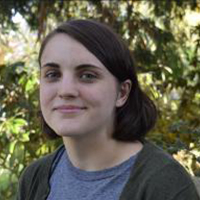 Elisa Bellah
Elisa Bellah
Postdoctoral Teaching Associate
Mathematics
21-241: Matrices and Linear Transformations
Goal: Coming soon
Description: Coming soon
School of Computer Science
 Joshua Sunshine
Joshua Sunshine
Assistant Professor of Computer Science
Software and Societal Systems Department
REUSE Summer Research Program for undergraduate students
Goal: Help students reframe setbacks, develop a grown mindset, and increase a sense of belonging.
The goal of this course is for students to understand and apply skills necessary to conduct computer science research. The goal of my PITF project is to ensure that the students we recruit to our undergraduate research program feel like they belong in the CS research community. Improving belonging can improve attitudes about doing research, student perception of their research and technical skills, and student learning. We are redesigning every unit of the existing course to discuss early failures as a necessary part of research, drawing from diverse examples from our guest speakers and encouraging students to reflect early and frequently about their challenges and ways to solve them. We are developing pre- and post-surveys of course participants to assess their sense-of-belonging and resilience to failure.
Tepper School of Business
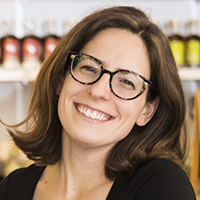 Meredith Meyer Grelli
Meredith Meyer Grelli
Assistant Professor
Entrepreneurship
Course: 45819 | Family Business
Goal: Engaging students in their own diverse experiences by instituting peer to peer consulting, which encourages students to step out of their own experience and into a classmates’ in a supportive way.
This course explores family businesses through a series of frameworks which consider ownership, capitalization and succession structures and pathways. My PITF project is designed to engage the diverse experiences of our students who come from family firms. We have implemented a peer to peer advising model in class, which we have piloted with family businesses in the Western PA community. Students have the opportunity to apply frameworks to their own family business and then receive feedback from their family business peers. We are surveying students about the effectiveness of the peer learning groups in an Early Course Feedback session through Eberly. In addition, my hope is that a portion of students in the course will opt into our community peer learning groups once the course has ended.
2022-2023 Provost's Inclusive Teaching Fellows
College of Fine Arts
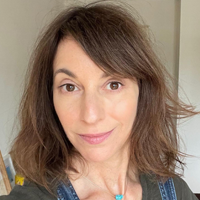 Kim Beck
Kim Beck
Associate Professor
Art
Course: 60-379: In Their Own Words - Artists Writing
Goal: Allowing students to express their different perspectives in ways that mirror their interests and backgrounds.
This class is for everyone who wants to read the ideas and language of artists, such as 'zines, poetry, prose, academic writing, memoir, and the things that defy categorization. We read artists' writings to situate ourselves among a community of people who walked before us through the challenges of making art. Students respond to these works as well as create their own texts, 'zines or essays to sit alongside or inside their own practice. My project is designed to promote more inclusive discussions among students. I also hope to help them recognize and take pride in their own intersectional identities, develop a respect for difference and an understanding of the complex systems that shape us as artists. The class highlights writings and works of a broad range of artists, including BIPOC, Queer, people with disabilities, people with diverse immigration status, and people from a variety of economic backgrounds. Students meet in discussion sections and as a full class and they have flexibility in the ways they present their work to the class.
College of Engineering
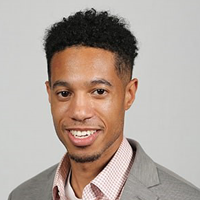 Corey Harper
Corey Harper
Assistant Professor
Civil and Environmental Engineering
Heinz School of Information Systems and Public Policy
Course: 94-802/12-783: Geographical Information Systems
Goal: Creating an environment that welcomes diverse perspectives, enriching classroom discussion and learning.
This course is a software-based course, which teaches students how to use analytical tools to investigate spatial relationships, patterns, and processes of economic, social, environmental, healthcare, crime, and transportation phenomena. My project is designed to teach students about equity and equality concepts in geospatial analysis and to promote a more inclusive learning environment. I am adding a course module to teach students about equality and equity and the different metrics for measuring these parameters across a region. So that students can gain additional practice independently, I am integrating these concepts into the homework questions Additionally, I am integrating diversity, equity, and inclusion into the final group project by teaching best practices for inclusive teamwork. To assess learning gains, I am using a survey to ask students about their knowledge of distributional equity and equality at the beginning and end of semester.
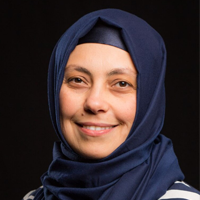 Fethiye Ozis
Fethiye Ozis
Assistant Teaching Professor
Civil and Environmental Engineering
Course: 12-100 Exploring CEE: Infrastructure and Environment in a Changing World
Goal: Creating a space where all students feel engaged, heard, and valued to support students to achieve a growth mindset, develop a sense of belonging, and improve retention especially from underrepresented populations.
My class is a first year Civil and Environmental Engineering course, required for all CEE students and also taken by other engineering students as an elective. The course introduces the discipline by blending lectures with three hands-on projects including project management, civil engineering and structures, and environmental engineering emphasis. My aim for the students is to embrace a growth mindset, speak freely, and continue with their journey of learning so that they may find their place in engineering as well. I also hope to build and cultivate a positive rapport between myself and the students and a mindset to promote belonging. To accomplish my goals, I promote discussions during class, I use growth mindset terminology blended in lessons and feedback, and I train project teams on communication skills by using CollabU. We are assessing our project through pre and post surveys, looking at students’ mindset, belonging in the discipline, and group work preferences.
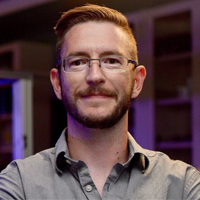 Ryan Sullivan
Ryan Sullivan
Professor
Mechanical Engineering, Chemistry
Course: 24-291, 24-381, 09-291, 09-381: Environmental Systems on a Changing Planet (plus STEM Addendum)
Goal: Fostering a strong sense of student belonging in environmental science regardless of what discipline students are coming from.
This is an introductory course to the interdisciplinary field of environmental science that explores how complex natural environmental systems function and thus support all life, and how human societies are interfering with environmental systems. My project focuses on effectively teaching the diverse range of student discipline backgrounds present in this course where STEM and non-STEM majors explore environmental science together. A 3-unit STEM Addendum course was created to allow STEM majors to explore the science and engineering topics covered in the main course to more technical and quantitative depth while still having all students learning together in the main course. I use a learn before lecture pedagogy throughout so that students are prepared to discuss questions posed to them that help them assess their understanding of the key concepts. I also ask them to submit their muddiest points from each week so we can address those questions. To promote healthy open dialogue during class we first discuss what the goals of engaging in dialogue versus debate or even discussion are. We then use dialogue as students respond to opening questions on each unit and questions on the pre-class material they had watched and read, as well as in response to discussion prompts on the Canvas forum. Clicker poll questions are also used to allow the entire class to respond. The focus is on recognizing the knowledge value contributed by multi-disciplinary perspectives to understand complex environmental systems.Students are also regularly asked to identify what important roles different disciplines contribute in addressing the global cases study examples explored. I implemented a survey that evaluates each student's sense of belonging in environmental science at the beginning and end of the semester, and students are routinely asked to reflect on their own experiences and thinking regarding sustainability.
Carnegie Mellon University - Qatar
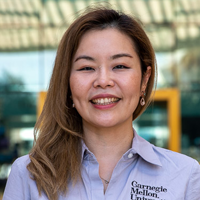 Nui Vatanasakdakul
Nui Vatanasakdakul
Associate Teaching Professor
Information Systems
Course: 67-352 E-business and Design Thinking
Goal: Enriching students’ learning experiences, motivation and engagement, through an exploration of their cultural and regional background.
This is an elective course targeting students in the Information Systems major, and Tech Entrepreneurship minor. Students learn about how digital platforms and businesses inter-play to produce innovative e-business models, processes, products and services in various contexts from both strategic and hands-on operational perspectives. In the final project, students will set up their own social commerce business in Qatar. My project is designed to promote more inclusive awareness about gender issues in entrepreneurship in social commerce education, particularly in a Middle Eastern context. I aim to create effective pedagogy in fostering knowledge and understanding on the sensitive gender culture in order to empower female entrepreneurs in the social commerce domain. I assign pre-work to prepare students to discuss gender in entrepreneurship in a global context. Then during our discussion I aim to develop their understanding and anticipation on what might be challenges in gender gap and in social commerce entrepreneurship in Qatar. Then, while implementing their social commerce business, students are asked to apply what they have learned to their business practice, and to observe and reflect on their experiences in the report. I am using the mid semester survey to ask students about their awareness of diversity and gender in social commerce entrepreneurship. At the end of semester, I am using the reflective method for students to analyze their learning experiences in a report.
Dietrich College of Humanities and Social Sciences
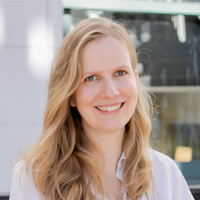 Nynke Niezink
Nynke Niezink
Assistant Professor
Statistics and Data Science
Course: 36-226 Introduction to Statistical Inference
Goal: Helping students hear and engage with diverse perspectives and experiences through exposures to statisticians and practitioners from diverse backgrounds, and more intense collaboration between students.
My course is a large undergraduate class, primarily taken by sophomores and juniors, from a wide range of backgrounds. This course is the second half of a year-long sequence in probability and mathematical statistics. Using the foundations from their probability class, students in this course learn the basic ideas and methods for analyzing data and making inferences about an unknown population based on a data sample. My project is aimed at improving students' sense of belonging in my class and in Statistics. I encourage student connections by introducing recitation sections to the course where they are encouraged to collaborate. I am also improving the inclusiveness of 36-226 by showing the students that statistics has many faces, both as a field and in terms of those who practice it, through new homework problems that introduce students to statisticians and practitioners in short video interviews and related exercises. I am using a survey to assess students' sense of belonging as well as their social network ties within the course context at the beginning and end of the semester.
Mellon College of Science
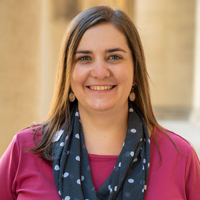 Lynley Doonan
Lynley Doonan
Assistant Teaching Professor
Biological Sciences
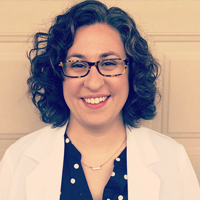 Amanda Willard
Amanda Willard
Director of Undergraduate Studies
Biological Sciences
Course: 03-117 Frontiers, Analysis, and Discovery in Biological Sciences
Goal: Increasing our students’ sense of belonging and normalizing setbacks as part of the journey to becoming a scientist.
Frontiers, Analysis, and Discovery in Biological Sciences is a first-year, semester long research-based laboratory course. Students work in teams on a research question to learn laboratory techniques followed by final projects in which they ultimately design a research experiment, implement it, analyze the data, and present the results. Our goal is to increase our students’ sense of belonging and normalize setbacks as part of the journey to becoming a scientist so that when our first year students encounter setbacks and failures they are more resilient and feel empowered to persevere in their journey to becoming a scientist. We want to highlight that the path to becoming a scientist is often nonlinear, everyone experiences setbacks and failures, and overcoming them is how you succeed. We ask students to reflect on what setbacks they have faced in the lab and how their laboratory technique has improved as a result; we further highlight this during sharing activities in which upper-class students in other laboratory courses share setbacks they have experienced and discuss how they overcame them. We also invite departmental faculty guest speakers to describe their journey to becoming a scientist and setbacks they encountered in addition to showcasing the research that they do. We are using a survey to assess students’ relationship to failure, whether they see themselves as a scientist, and how they describe the characteristics of a scientist.
Tepper School of Business
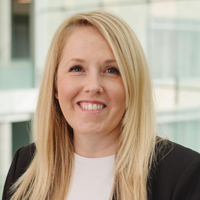 Abbe Depretis
Abbe Depretis
Assistant Teaching Professor
Course: 45-893 Communicating DEI in the Workplace
Goal: Teaching DEI practices to apply in the workplace and in their own work and organizations.
Communicating DEI in the Workplace is a mini course designed to introduce the concepts of Diversity, Equity, and Inclusion to our part time MBA students in a meaningful and dedicated way and to develop their communication skills within this critical area of the business world. By using students' own stories and perspectives, the class aims to include their voices and combine their experiences with the narratives of others to show a cohesive picture of DEI in the workplace. We will consider ways to communicate the concepts and applications of Diversity, Equity, and Inclusion beginning with the hiring process and moving into the workplace, including teamwork, interpersonal interactions, and innovation, and culminating in a final DEI initiative for their organization.
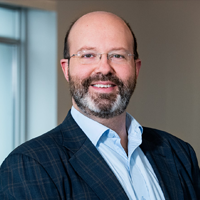 John Gasper
John Gasper
Associate Teaching Professor
Course: 73-348 Behavioral Economics
Goal: Increasing students’ sense of belonging in the classroom and field, and engaging students in discussing issues of inclusion.
This course is an elective and intended to give future managers, consultants, and policy makers an introduction to the insights and applications of behavioral economics. It draws together research from psychology and economics to address topics including heuristics and biases in inference and prediction, risk perceptions and attitudes, and the roles of group processes in decision making. Through this fellowship, my aim is to enhance awareness and understanding of how issues surrounding diversity, equity, and inclusion have limited the data we use to inform our understanding of economic processes. By integrating the conversation of diversity in subject pools into material earlier in the course, it is my hope that students feel more comfortable engaging with discussion related to diversity and inclusion. I am also redesigning several assessments in the course to highlight the role of research subjects from different backgrounds. Often this diversity, or lack thereof, is a crucial yet overlooked aspect in generalizing the results of research. I am scaffolding the development of the students’ final replication project to highlight the diversity of their subjects and the role that this might play in what we “know” in the social sciences. I plan on measuring the change in a sense of belonging and sensitivity to DEI issues via pre- and post-tests.
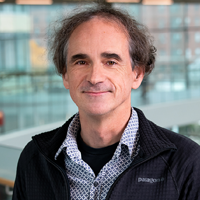 Bryan Routledge
Bryan Routledge
Associate Professor
Course: 70-106 Business Science
Goal: Building shared community guidelines for discussion, to help students discuss how DEI issues impact and are impacted by business decision making, and how business science tools can apply directly to improving the world.
The goal of the course is to introduce undergraduates to the academic study of business. The content of the class is to give students experience with the three core ”lenses” used to study and advance the science and practice of business: the mathematics of optimization, economics, and organization behavior. Typically, these concepts are new to students. My goal is to create a more inclusive classroom that does not rely on “background'' engagement where students are mostly passive. Second, DEI issues are ubiquitous in business, so we are making space to address them in the context of the course material. We are spending time discussing our communities guidelines and norms (linked to the business topic of an organization's culture). Each assignment has a tie to a DEI issue where we discuss the connection to business as well as how business science tools can impact DEI issues both negatively and positively. We are using a survey to ask about students' sense of belonging at the beginning and end of the semester.
2021-2022 Provost's Inclusive Teaching Fellows
College of Fine Arts
 Ausar Stewart
Ausar Stewart
Assisstant Professor
Drama/Voice
Course: 54-301, Acting III
Goal: Recontextualize decolonization, not in academic or metaphorical terms, but as an embodied practice that can be undertaken to allow for the student to personally access what releasing colonial structures means for themselves.
I am redesigning a section of Acting III, a course taken by third year performing majors in the School of Drama. My goal is for students to be able to recontextualize their acting as a path of development, healing, transformation, and renewal where traditionally acting training is primarily contextualized within its business and industry and the white supremacist and Eurocentric models contained therein. Shifting the lens away from the primarily western models that constitute the majority of the methodologies within an acting conservatory curriculum, this course draws from numerous global sources identified as Templates of Inner Standing to constitute the core of its curriculum. These include: African embodied movement practices and philosophy, such as HUDU 4 elements practice from PIMAY Afrikan yoga; the ancient teachings of the 7 Hermetic Principles through Kemetic Yoga; grounding and mindful theatre practices from Japan in the form of Tadashi Suzuki’s performing pedagogy; First Nations philosophy as fuel for artistic exploration through the 0-9 law of the Twisted Hairs shamanic sciences; and charting the subconscious through the liberating practice of Jerzy Grotowski’s River Work which forms the underlying journey and progression of this class. This class provides students the tools to begin the introspective process of self examination, self care, and self appointment which allows and empowers the artist to truly blossom as well as allowing the individual to more deeply connect with and access their identity in their lived experience and artistic practice.
College of Engineering
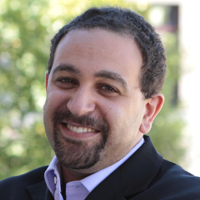 Daniel Armanios
Daniel Armanios
Associate Professor
Engineering and Public Policy
Course: 19-468/19-678, Engineering and Social Justice
Goal: Complement the existing diversity of representation in course materials with assignments that encourage different forms of thinking, expression, and ideas that diversity brings.
This course is designed to help students unpack the legacy and role of engineers in our perennial fight for social justice and equity. We discuss how engineers can promote a more equitable world through understanding our professional legacy, exploring biases (unintentional or purposeful) in various engineering systems, and methods for characterizing and rectifying said biases. My project is designed to promote more inclusivity through embracing and encouraging more nontraditional forms of assignments (i.e., podcasts, poetry, art vs. typical memos or essays). For example, I have been working to develop new rubrics that encourage non-traditional assignments through better clarifying objective expectations for such assignments and leaving room for creativity in their execution. Additionally, I am providing scaffolding that accounts for the mix of undergraduate and graduate students in the course. For instance, I have been building pre-class syntheses of reading materials to help prepare everyone for class activities and discussions. To assess these approaches, I will count how many students complete non-traditional assignments and compare their quality to student work from last year. I will also use small assignments or quizzes at the beginning of class to gauge reading comprehension and retention across undergraduate and graduate students.
 Sarah Christian
Sarah Christian
Associate Teaching Professor
Civil and Environmental Engineering
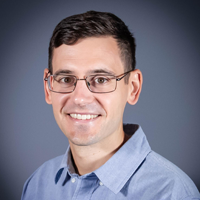 David Rounce
David Rounce
Assistant Professor
Civil and Environmental Engineering
Course: 12-401, CEE Design: Imagine, Build, Test
Goal: Teach students to become socially conscious engineers, sensitive to the impacts that engineering projects have on individuals, especially those from marginalized communities.
With this goal in mind, we are working inclusively with a local community and stakeholders to incorporate their feedback and insight into the engineering design process. We applied this approach to our department’s capstone course, in which students apply their learning from previous project-based courses to design an engineering solution to a real-world problem. Discussions, journals, and other writing assignments create space for students to reflect on how the engineering design process can lead to inequitable outcomes. Specifically, we challenge students to evaluate previous engineering projects through the lens of equity and justice. Students also reflect on inclusivity both within project teams and with respect to gathering and integrating community perspectives. We are using pre- and post-assessments to determine the change in value that students place on working with communities and incorporating their perspectives into the design process.
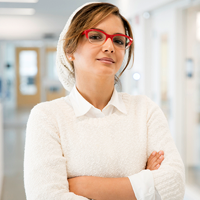 Hanan Hibshi
Hanan Hibshi
Assistant Teaching Professor
Information Networking Institute
Course: 14-735, Secure Coding
Goal: Foster a collaborative environment to help support students, including those from underrepresented groups, to feel welcome, challenged, and valued in terms of their contributions to the field of cybersecurity.
At the intersection of cybersecurity and computer science, this course prepares students for cybersecurity challenges in their future jobs. My project aims to provide a valuable educational experience for every student who is interested in cybersecurity. To be inclusive, I strive to help students feel valuable by providing them with targeted tools and resources to overcome any gaps in their technical background. Additionally, to prevent student isolation and increase peer learning, I assign students to heterogeneous groups using a variety of parameters historically tied to student success in the course. I intentionally and repeatedly encourage dialogue among students with different experiences within those groups. To investigate the impacts of these approaches, I am using student surveys to ask about their course experience and comparing my students’ performance on authentic assignments to outcomes on the same assignments in previous semesters. Preliminary results suggest that more students now successfully complete the cybersecurity challenges.
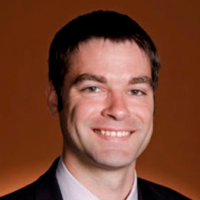 Vincent Sokalski
Vincent Sokalski
Associate Professor
Materials Science and Engineering
Course: 27-100, Engineering the Materials of the Future
Goal: Develop lesson plans, classroom activities, and discussions that honor the diverse backgrounds of past, present, and future materials scientists, including those taking the class.
This course provides an introduction to the field of materials science and engineering including the critical interconnection between structure, properties, processing, and performance. My approach examines the role of materials engineering in addressing unique and overlooked challenges faced by underprivileged and minoritized groups. Students will directly influence the course content. For example, to make the course more culturally responsive, I will design lessons to overlap with the interests and backgrounds of my students based on surveys and discussions conducted early in the course.
Carnegie Mellon University - Qatar
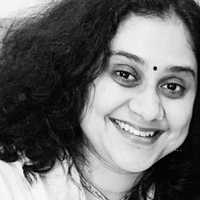 Deepa Nair
Deepa Nair
Assistant Teaching Professor
History, Arts and Social Sciences
Course: 79-391, Nations and Nationalisms in South Asia
Goal: Create a safe space where students can bring their whole selves and express their views freely irrespective of their gender, race, ethnic, linguistic, sexual, religious, or national differences.
This course examines the role nationalism has played in anti-colonial struggles, post-colonial state formation, and contemporary political developments, leading to the formation and political development of the nations and states of South Asia. My PITF project explores inclusive teaching and course design strategies that enable student participation, removes barriers, creates a sense of belonging, and considers various learning needs and preferences. I am interested in creating an inclusive learning community where different backgrounds and cultures of students are cherished and celebrated, and their varied socio-cultural experiences are embraced. I am promoting inclusive class discussions by assigning texts and discussion questions as pre-work, and using both small and whole group discussions. I am also assigning a reflection journal every week where students can reflect on the week's readings and class discussions. I plan to use a survey to ask about students' sense of belonging at the beginning and end of the semester. I will also gather student feedback early and later in the semester to assess the effectiveness of these inclusive teaching and learning strategies, especially related to discussions and reflection journals.
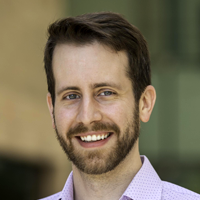 Patrick Walsh
Patrick Walsh
Assistant Teaching Professor
Philosophy, Arts and Sciences
Course: 80-249: AI, Society, and Humanity
Goal: Increase student agency and control regarding assignments to allow diversity to flourish and ensure everyone's voice can be expressed most fully.
This discussion-based course examines the ethical and social implications of current and near-future AI technology, and highlights the interdisciplinary nature of these questions and the various methodologies required to answer them. I aim to give students agency in how they address these topics by providing options on assignments, more control over grades, and more room for unusual or novel approaches to tackling these moral and social challenges. With this in mind, I use specifications grading, an approach to evaluation that relies on pass/fail grading of assignments and multiple opportunities to revise so that students can choose which “specs” they will engage with and, therefore, what grade they will receive. By giving students choices for how to approach assignments, including topic and format, I hope to give students the ability to engage on their own terms with the course content. I am also assessing the impact of this course on student's moral sensitivities and awareness through a pre/post test I developed in collaboration with the Eberly Center as part of a different/larger project.
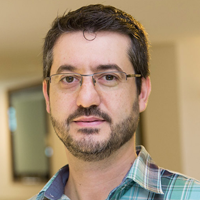 Ihab Younis
Ihab Younis
Associate Teaching Professor
Biology, Biological Sciences
Course: 03-442, Molecular Biology
Goal: Highlight diverse scientists to enhance students' awareness of gender bias in science.
This course is designed to give students the principles and tools that they need to think like an independent scientist. While the field of molecular biology does not lack brilliant contributions from female scientists, they tend to be overlooked. Two main changes will be implemented in the course: First, the six research papers that the students read, summarize, and discuss in class will be selected such that three are authored by women scientists and three by men. Second, students will add a short biography of the scientist in their written summary that focuses on their scientific background and accomplishments. Pre- and post-surveys of students' knowledge of scientific achievements of various male and female scientists will be used to assess students' awareness. By giving students, especially women, a better sense of belonging, I hope students are able to achieve higher levels of motivation and inspiration, deeper interest, better engagement, and an enhanced overall learning experience.
Dietrich College of Humanities and Social Sciences
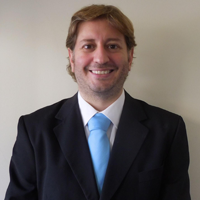
Assistant Teaching Professor
Institute for Politics and Strategy
Course: 84-275, Comparative Politics
Goal: Use active learning to improve all students’ outcomes and sense of belonging.
Comparative Politics is usually the largest course in IPS with 50-75 students, from first-year students to seniors, representing more than fifteen majors. Often, the majority of students are from underrepresented groups. This course introduces students to a major subfield in political science, in which we use comparative methods to study and compare domestic politics across countries. Students learn about how political systems differ, discuss why they differ, and explore the consequences of such variation. I plan to engage all students as much as possible by using targeted active learning techniques during class sessions. To strengthen students’ sense of belonging to the class, active learning exercises will encourage application of content to relevant, real-world cases as students form strong arguments. Furthermore, to strengthen the students’ sense of belonging, during every class, we will have small-group discussions, rather than whole class discussions alone, structured to encourage students to express their voices.To help create an inclusive learning environment and support participation, I will facilitate guided conversations about group expectations at the beginning of the semester. I expect that active learning and more inclusive group discussions will help increase student engagement, which in turn will allow them to achieve deeper mastery. I will measure their sense of belonging and engagement through surveys at the beginning and the end of the semester.
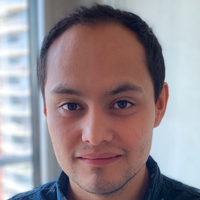 José Estrada
José Estrada
Assistant Teaching Professor
Modern Languages
Course: 82-282, Interpreting Global Texts and Cultures
Goal: My PITF project is designed to promote inclusive practices in the skill of interpretation of literary texts, including multiple opportunities for practice and feedback.
This course is part of Dietrich's new General Education Program and is designed to introduce first-year students to the field of cultural studies and how cultural agents from around the world contribute to and challenge the discipline. In an effort to meet students where they are in terms of interest, students chose a children's book from four options. Each week, students interpret their chosen children's book, applying new vocabulary and information from criticism readings pertaining to cultural studies. Students keep a reading journal where they record their observations and interpretations each week. The children’s book activity and journaling makes theory more accessible by providing multiple opportunities to apply different theories to the same text, thereby allowing students to focus on developing interpretative skills rather than simultaneously engaging with a new text each week. We are using a rubric to evaluate students’ reading journal responses and to track the development of their interpretation skills and perspectives over time.
Heinz College of Information Systems and Public Policy
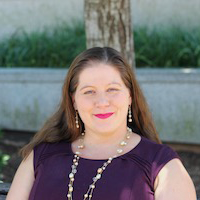 Rebekah Fitzsimmons
Rebekah Fitzsimmons
Assistant Teaching Professor
Information Systems and Public Policy
Courses: 90-718, Strategic Presentation Skills & Professional Speaking
Goal: Promote a more inclusive approach to professional speaking, both by introducing accessibility and universal design standards as desired learning outcomes for students as well as creating a more inclusive definition of "professional" and working to teach presentation skills and strategies in ways that address diverse student needs.
I teach core communication courses in which students work to improve their public speaking, including impromptu speaking, prepared presentations, and group presentations. This approach will support all students, including introverted and neurodiverse students, and challenges they face when giving public presentations. To address more inclusive presentations as a student learning objective, I have incorporated a lesson on universal design and accessibility standards and require students to design their final presentation with these standards in mind. I am continuing to research new approaches and techniques to address neurodiversity in professional presentation contexts and hope to find approaches to address these issues in the spring iteration of my course. I am measuring the impacts of my intervention by using a survey to ask students about their sense of public speaking as a learnable skill rather than an innate talent. By increasing awareness and teaching students tools to make their own professional presentations more accessible, I hope to help normalize accessibility as a part of professional communication in the 21st century, in terms of preparing my students to create a more inclusive environment in their workplaces.
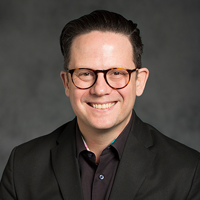 Christopher Goranson
Christopher Goranson
Professor
Information Systems and Public Policy
Course: 90-783, Policy Innovation Lab: Public Interest Technology
Goal: Intentionally create space, both in the classroom and with our community partners, to better account for differences in backgrounds, experiences and perspectives and increase the likelihood of long-term changes in our society’s engagement of technology.
The Policy Innovation Lab partners students with real-world challenges from external organizations (usually government or non-profits) who provide some public benefit or good. I am working to ensure that, through in-class case studies and examples, direct partner engagements, and user-centered design, I engage both students and partners collaboratively toward a better understanding of how Public Interest Technology impacts wide sections of society, especially for traditionally underrepresented communities or those who have not been well served by advancements in technology. I hope to build a robust, inclusive learning environment where the best ideas around public interest technology can emerge and lead to positive societal impacts. In addition to further diversifying course content, I am also working to redesign assignment rubrics so that all students have a better sense of the objective expectations for their work, allowing them to engage more thoughtfully and creatively. I am using the Eberly Center’s Early Course Feedback service to assess students’ engagement and perceptions of the redesigned rubrics. I will also compare the final assignment deliverables to previous years to qualitatively assess the impact of the rubrics.
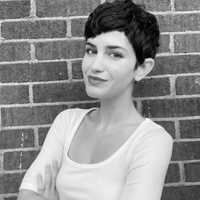 Haylee Massaro
Haylee Massaro
Assistant Teaching Professor
Information Systems
Course: 95-717, Writing for Information Systems Management
Goal: Promote discussion about understanding the perspectives of others, the importance of the sense of belonging, and how feelings of “othering” or isolation can hinder one’s, or one’s future colleagues’, progress and experiences in the workplace.
I teach a writing and communications course, where students examine case studies and best practices in professional communications as it relates to the field of information systems. Via a series of intentionally designed role play activities, students will explore the goals above in pairs and small groups, followed by full class discussions and individual reflections after class. My hope is that these exercises will not only create an inclusive place for discussion but also will allow students to consider perspectives that are different from their own. We are using pre- and post-surveys to assess student attitudes and feelings towards the inclusive communication topics explored in the course. Additionally, we will analyze student responses to the individual reflections where they document takeaways from role play exercises and answer questions about how they can influence inclusive workplaces in their future professional lives.
Mellon College of Science
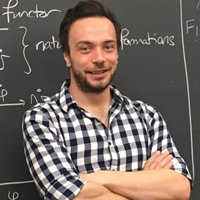 Clive Newstead
Clive Newstead
Assistant Teaching Professor
Mathematical Sciences
Course: 21-127 Concepts of Mathematics
Goal: Enhance the course content, which is highly abstract and theoretical in nature, to be more accessible and relevant to students' interests and identities.
This is an introductory course in proof-based mathematics, which forms the basis of most higher-level math courses and is a prerequisite for many courses in Computer Science and other theoretical disciplines. To allow students to see more of their own identities and interests reflected in the course content, I am incorporating tasks into the weekly homework assignments that require students to engage with the topics and skills from the course in ways beyond proving theorems, such as by describing the contributions of a contemporary mathematician in a particular area of study, or by applying a mathematical idea to a real-world situation. I am using surveys and a focus group to measure students' perspectives surrounding mathematics at the beginning, middle, and end of the course.
School of Computer Science
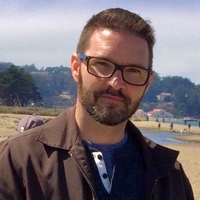 Scott Pavetti
Scott Pavetti
Assistant Teaching Professor
Institute for Software Research
Course: 17-627, Requirements for Embedded Systems
Goal: Promote inclusive design and challenge students to design in a way that benefits a more inclusive, broader audience.
This course prepares students to take a product concept and refine it into a complete requirements and specifications document for software intensive projects. My project helps prepare students for future, more inclusive, software design projects by rethinking a central requirements engineering methodology called personas. Personas are meant to identify the target audience for a particular product. However, the use of personas can result in exclusive, rather than inclusive, designs when only certain groups of users are considered. Through newly designed class discussions, assignments, and a final project, students will learn how to create more inclusive personas and product designs by considering the different kinds of people that are served by developing products. Students final projects will be assessed using a rubric that evaluates their use of personas. In addition, a survey at the end of the semester will ask students about their experience designing inclusive personas.
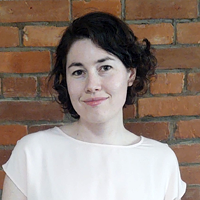 Kelly Rivers
Kelly Rivers
Assistant Teaching Professor
Computer Science
Course: 15-110, Principles of Computing
Goal: Show students from diverse backgrounds how computer science can support their own interests and engage more students in this field, especially historically underrepresented students.
I teach an introductory computer science and programming course that fulfills a general education requirement for non-majors. It covers big ideas from the field of computer science (CS) with the goal of having students recognize these topics and how they can be applied in other fields. My goal is to help students understand how computational concepts and techniques can be used in their own fields of study and how CS is relevant in their own lives. To achieve this goal, I am developing a more diverse set of examples and homework problems to demonstrate how CS and programming can be used to support a variety of disciplines, with a specific focus on 'computational discovery' (CS for scientific and data analysis), 'creative computing' (CS for self-expression and art), and 'critical computing' (how CS affects the world around us). I am asking students to fill out pre-, mid-, and post-semester surveys to self-report on the extent to which they believe that CS is relevant and important in their field of study, in their hobbies, and for understanding the world around them.
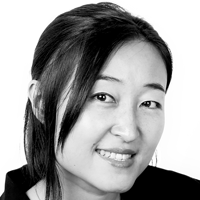 Lining Yao
Lining Yao
Assistant Professor
Human-Computer Interaction Institute
Course: 05-499/05-899, Inclusive Tangible and Material Interfaces
Goal: Teach inclusive design principles.
This course combines lecture and hands-on labs in which students learn the science and design principles of tangible and morphing materials and interfaces. My project is designed to teach students inclusive design principles alongside the technical engineering materials. Lectures, readings, and discussions will include the topic of inclusive design. Additionally, a redesigned final project challenges students to design a morphing matter product inclusively. By introducing and practicing inclusive design guidelines, I am preparing students to think inclusively anytime they design products. To assess student outcomes, I will use a rubric to assess the extent to which students’ effectively use inclusive design principles in their final projects.
Tepper School of Business
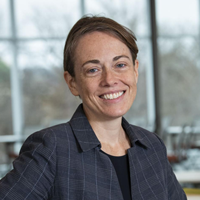 Clara Burke
Clara Burke
Associate Teaching Professor
Business Management Communications
Course: 45-890, Consulting and Conflict Resolution
Goal: Help students become more inclusive communicators and leaders by rethinking the biases inherent in how we communicate and view others' communication styles.
This course is an elective in which students build their conflict resolution and general communication skills through role plays, feedback, and self-reflection. Students will analyze cases, communication standards, and conflict resolution tools from the standpoint of inclusivity. They will also reflect how, as future leaders, they can play a role in developing less biased work environments and widening their own and their organizations' views of effective communication and conflict management. I am using students' responses to assignments to assess if, and how, their understanding of inclusive communication changes. I'm hoping that our students, who are already very attuned to the importance of inclusion, will begin their journeys to being even more active inclusive leaders, be willing to listen to their colleagues' viewpoints, and take a fresh view of their own and others' communication styles.
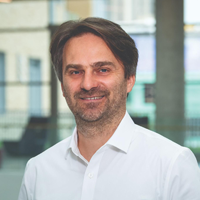 Peter Stuettgen
Peter Stuettgen
Associate Teaching Professor
Marketing
Course: 70-381, Marketing
Goal: Increase students' awareness of inclusion as it relates to marketing decisions and sense of belonging in the classroom and in the field of marketing.
This introductory course covers the whole spectrum of marketing and is required for all business majors and minors. I am “flipping the classroom”, prioritizing class time for more examples, cases, and discussions exploring the impact of marketing decisions on historically excluded groups. By repeatedly discussing several examples and cases from different perspectives, my hope is that students will internalize thinking about the impact their marketing decisions may have on marginalized groups. Moreover, to increase students’ sense of belonging in marketing, I am creating a video interview series, highlighting a diverse set of professionals working in different marketing fields. The videos will show both the diversity of people working in marketing as well as the diversity of jobs within the field. I will measure a) students’ sense of belonging using a survey at the beginning and end of the semester and b) students’ awareness of inclusion issues and mastery of course concepts by analyzing their answers on the final exam and assignments.
2020-2021 Provost's Inclusive Teaching Fellows
 Ros Abbott
Ros Abbott
Assistant Professor
Biomedical Engineering
College of Engineering
Ros is redesigning Introduction to Biomedical Engineering, a course aimed at first-year students before they have chosen a specialty in Engineering. The course introduces the breadth of research tracks within Biomedical Engineering. Previously, through a Wimmer Faculty Fellowship on the Development of Teaching, Ros redesigned her lab exercises to more actively engage students. For her PITF project, Ros is building on this work, creating videos of diverse biomedical engineers discussing their path in the discipline and how these engineers’ daily work is related to each course topic. The videos are meant to help students better identify with the discipline by seeing and hearing from biomedical engineers with a diversity of backgrounds and identities. These videos also aim to help students see the relevance of course concepts as real-life research tools. Using a vetted survey instrument, Ros and her team at Eberly plan to study how students’ sense of belonging and/or perception of “what it means to be a biomedical engineer” change after her intervention.
 Mark Bedillion
Mark Bedillion
Associate Teaching Professor
Mechanical Engineering
College of Engineering
Mark is redesigning Fundamentals of Mechanical Engineering, a first-year course seeking to both introduce students to fundamental principles of engineering and attract them to the discipline. Mark aims to develop students’ skills for designing products with inclusion in mind. His PITF strategy includes both asynchronous and synchronous learning activities based on examples when engineers failed to account for diversity and produced designs that were not inclusive and sometimes discriminatory. In addition, students will practice their inclusive design thinking skills through revamped homeworks and projects. Modeled after the Maya Pedal project from Guatemala, the culminating project of the semester will invite students to think about a pedal-powered design for machinery in locations with limited access to electricity. This project will be relevant to students as many communities in the US and globally have poor or intermittent access to electricity. Mark and his Eberly team plan to assess the impacts of the project through an analysis of student performance on specific areas of homeworks and the final project.
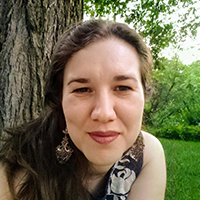 Christina Bjorndhal
Christina Bjorndhal
Special Faculty
Philosophy
Dietrich College of Humanities & Social Sciences
Christina is redesigning Nature of Language, a foundational linguistics course and elective for a number of other related majors and minors. The large enrollment course introduces students to key sub-areas of linguistics like phonetics, phonology, and syntax. Using a class wiki project, Christina will challenge students to engage with linguistics as a way of unpacking examples of discrimination and oppression. She is also designing asynchronous activities for students to practice foundational skills in linguistics, thereby re-allocating face-to-face time in weekly recitations to facilitate group discussions with students on issues of diversity, equity, and inclusion. In parallel, Christina is working to incorporate research, readings, and examples that highlight marginalized languages and identity groups traditionally underrepresented in the field.
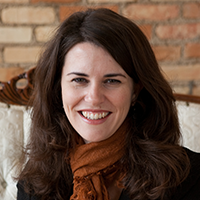 Leslie Donaldson
Leslie Donaldson
Assistant Teaching Professor
Arts Management
Heinz College of Public Policy & Information Management
Leslie is redesigning Arts & Community Development, one of several electives that fulfills the Cultural Policy requirement for graduate students in the Masters of Arts Management (MAM) Program. Through the MAM Program, students learn how to confront and find solutions to problems facing the arts and cultural sector. Her course introduces students to creative place-making, a developing field of study, in which students learn about community development and the role arts and culture can play in this process. Students will use place studies to understand and explore various topics, including public art, cultural districts, creative workforce development, cultural tourism, and cross-sector collaborations in transportation, public safety, and housing. In addition, field scans will challenge students to question and engage with issues of gentrification, economic inequality, and racial equity within the field. Reflective assignments will allow students to take time to process these issues. The class culminates in a final project in which students must develop a creative community development plan for a local Pittsburgh neighborhood which recognizes and values the assets and needs of the community. Through the course and the final project, Leslie aims to equip students with the tools to engage in the arts and community development by thinking critically about controversial issues and working to include the voices of various stakeholders, rather than leaving them out.
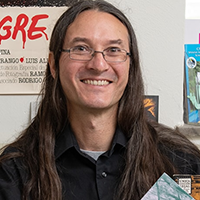 Felipe Gomez
Felipe Gomez
Teaching Professor
Modern Languages
Dietrich College of Humanities & Social Sciences
Felipe is redesigning Comics, Community, and Coding: Electronic Textuality and Culture in Latin America, an advanced undergraduate class in Modern Languages, Hispanic Studies. The course introduces students to the world of Latin American comics as well as the Digital Humanities. Students collaboratively drive course content through their research interests, exploring comics covering a range of identities relevant to Latin America. Students will regularly discuss their chosen comics and themes throughout the semester while learning the skills to code the comics as part of a Digital Humanities project.
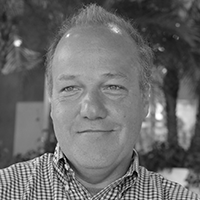 Kai Gutschow
Kai Gutschow
Associate Professor
Architecture
College of Fine Arts
Kai is redesigning Architecture and the Arts, a first-year undergraduate course introducing the discipline via blending lectures and discussions. Following feedback from Architecture students, Kai decided to diversify the curriculum by explicitly integrating a broader array of buildings from across the world and featuring architects with diverse backgrounds. Kai is translating this more inclusive content into actionable skills for students to acquire. For instance, what inclusive questions should an architect ask when faced with a new building? Who was excluded from the design phase? Who is included/excluded from the use of the building by its design? Kai and his Eberly team will assess the impact of the project through a pre/post assessment measuring students’ learning gains regarding the intricate relationships between architecture, arts, and inequalities.
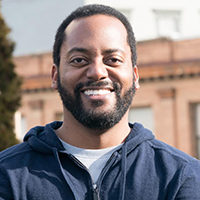 Kyle Haden
Kyle Haden
Interim Senior Associate Head, Assistant Professor - Acting
School of Drama
College of Fine Arts
Kyle is redesigning Acting III, a course taken by juniors in Acting and Musical Theater. Traditionally, students work on a performance project with a director, exploring and performing plays from Chekhov, Greek theater, and Comedy of Manners. Kyle’s redesign steps outside of the Eurocentric theater canon by focusing the introductory unit of the course on issues of diversity, equity, and inclusion in Drama. Through innovative classroom activities and discussions, students will grapple with the following provocative questions. In American theatre, what culture is dominant and which cultures are marginalized? How does this (de)centering manifest itself in the industry and how is it portrayed? What does it mean to center marginalized cultures/decenter whiteness? With these questions as critical lenses, students will then rehearse and perform scenes from plays from an array of cultures. Kyle is particularly interested in finding diverse texts written by marginalized voices and characters that allow students to connect to their specific cultures and intersectional identities, including, but not limited to race, ethnicity, religion, gender identity, and sexual orientation. By giving students the opportunity to work on texts with which they identify, Kyle hopes students will better connect with the material and focus deeply on nuanced acting techniques, allowing them to deepen and explore their craft in new ways. Kyle and his Eberly team plan to assess the impacts of his course redesign through student focus groups during and after the course.
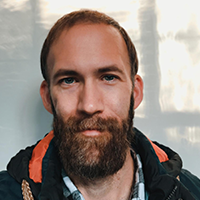 Geoff Kaufman
Geoff Kaufman
Assistant Professor
Human Computer Interaction Institute
School of Computer Science
Geoff is redesigning Persuasive Design in HCI, an elective course for undergraduate and graduate students. Geoff’s project focuses on redesigning the course’s team project, a primary learning and assessment component of the course, to explicitly focus on equity and inclusion. Students will design a technology that aims to reduce or mitigate bias or a tool that empowers designers or researchers of technology to be more mindful of their own biases. As students explore the theories and concepts related to persuasive design, they will also engage in a variety of activities designed to reveal how assumptions and implicit biases about technology users drive design decisions. Geoff is also particularly interested in strategies for creating a classroom climate that is welcoming and supportive of all students.
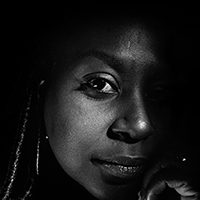 Gizelle Sherwood
Gizelle Sherwood
Associate Teaching Professor
Chemistry
Mellon College of Science
Gizelle is redesigning the mini-course The Design and Making of Skin and Hair Products, an elective lab course in Chemistry. Students will explore how factors such as race, ethnicity, gender identity, socio-economic status, environmental factors, athletic persuasions, and culture play a role in the formulation of cosmetic products. Gizelle’s redesign centers diversity in pre-lab assignments by challenging students to consider how the formulations in the products they use map to their identities, unpacking assumptions related to product choices. Additionally, students will apply their learning from assignments and discussions as they work in teams to design signature formulations of skin and hair products for fictional “clients” with diverse interests and identities.
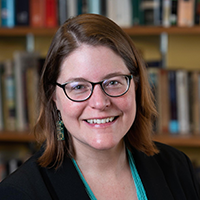 Necia Werner
Necia Werner
Associate Teaching Professor
English
Dietrich College of Humanities and Social Sciences
Necia is redesigning Writing for the Professions, a 200-level writing course that fulfills a writing requirement for many undergraduate STEM students. In addition to teaching sections of this course, Necia trains and supervises a group of instructors who teach additional sections. A primary goal of her redesign classroom activities and assessments to reprioritize and enhance values and learning outcomes previously embedded in the course. These include explicitly training students how rhetorical and discourse moves can respect or disrespect, address or silence, or empower or harm audiences and users. Because this course also introduces students to interpersonal and team-based collaboration one might anticipate in the workplace, her redesign seeks to highlight strategies for interaction and communication that are both supportive and equitable.
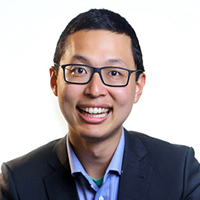 Jerry Wang
Jerry Wang
Assistant Professor
Civil and Environmental Engineering
College of Engineering
Jerry is redesigning Computation and Data Science for Civil and Environmental Engineering, a required course for majors. Typically taken in the second year, the course introduces students to concepts in numerical computation and data science. Jerry’s project has two main threads: (1) to develop a curriculum where students see themselves as someone who can use computing in engineering, and (2) to encourage a moral orientation about data. To meet the first goal, Jerry is incorporating and celebrating the contributions of women and people of color alongside the more traditional voices that make up the discipline. For the second goal, students will explore ethical issues related to data science as then engage with example datasets, practice opportunities, and projects. Jerry also seeks to support his students who vary considerably in background preparation. His project includes developing supports and resources as on-ramps to the prerequisite skills required for projects and learning activities. This work complements the other aspects of his project and extends access to students, regardless of their prior knowledge.